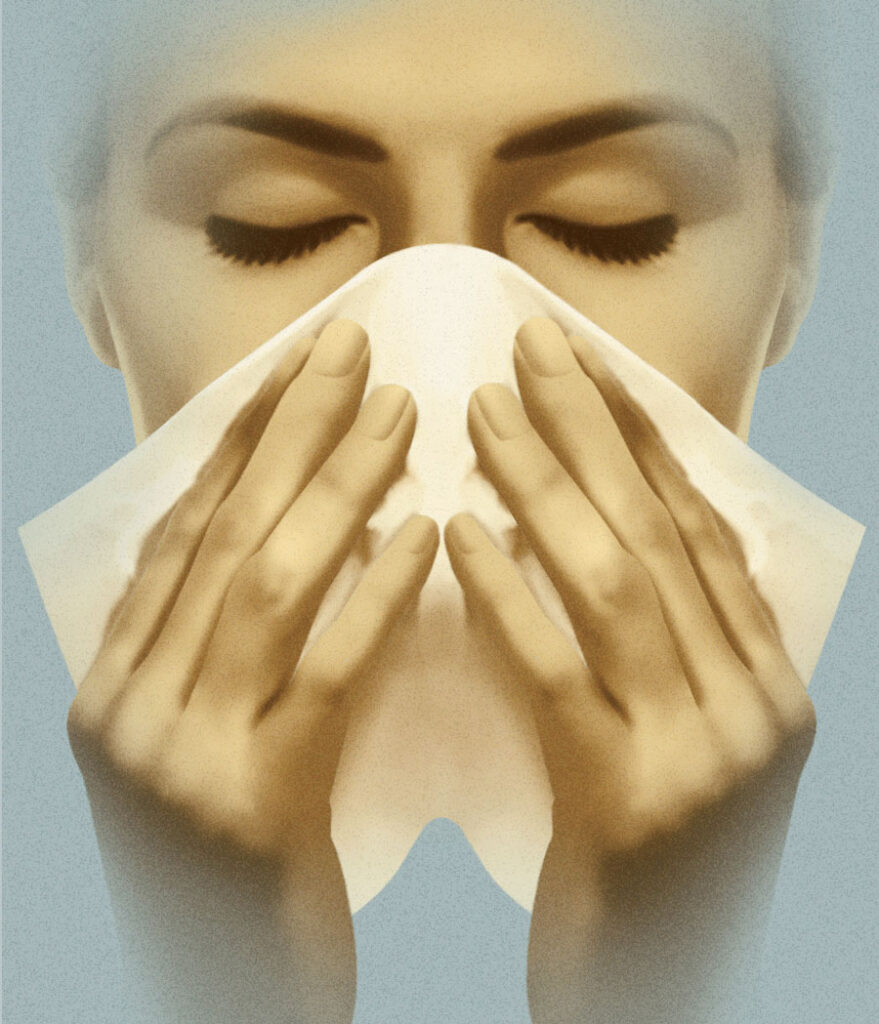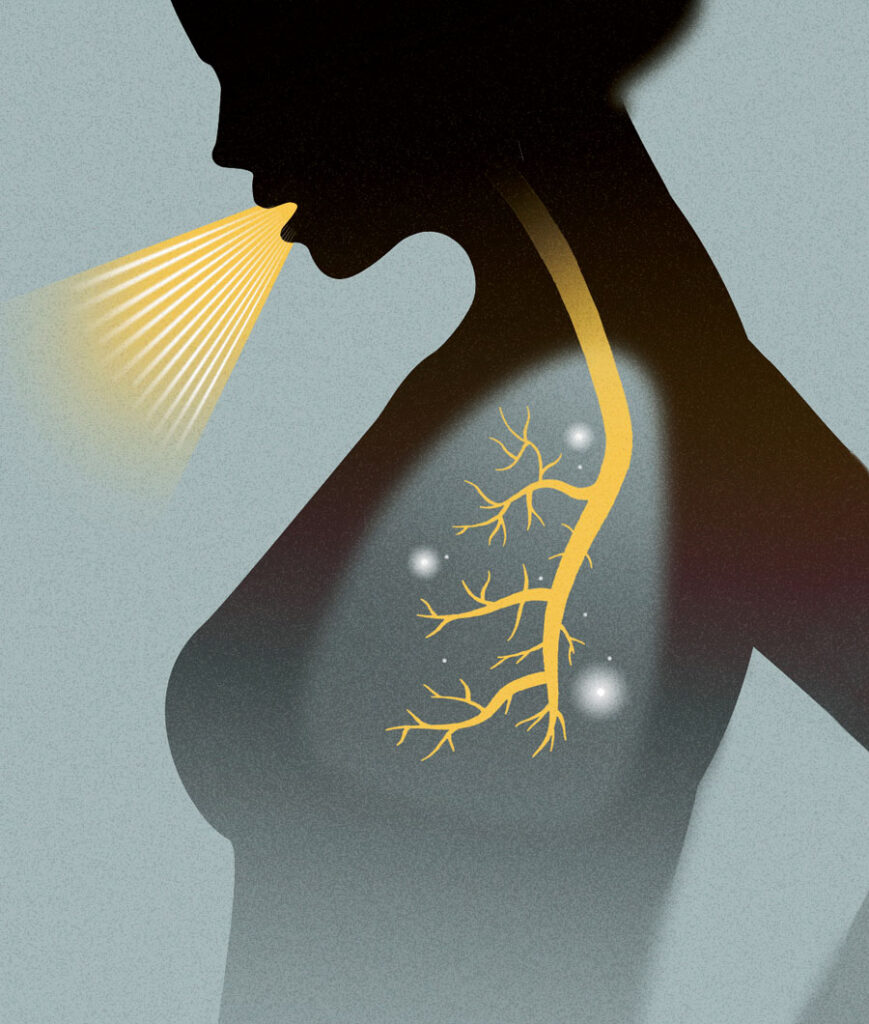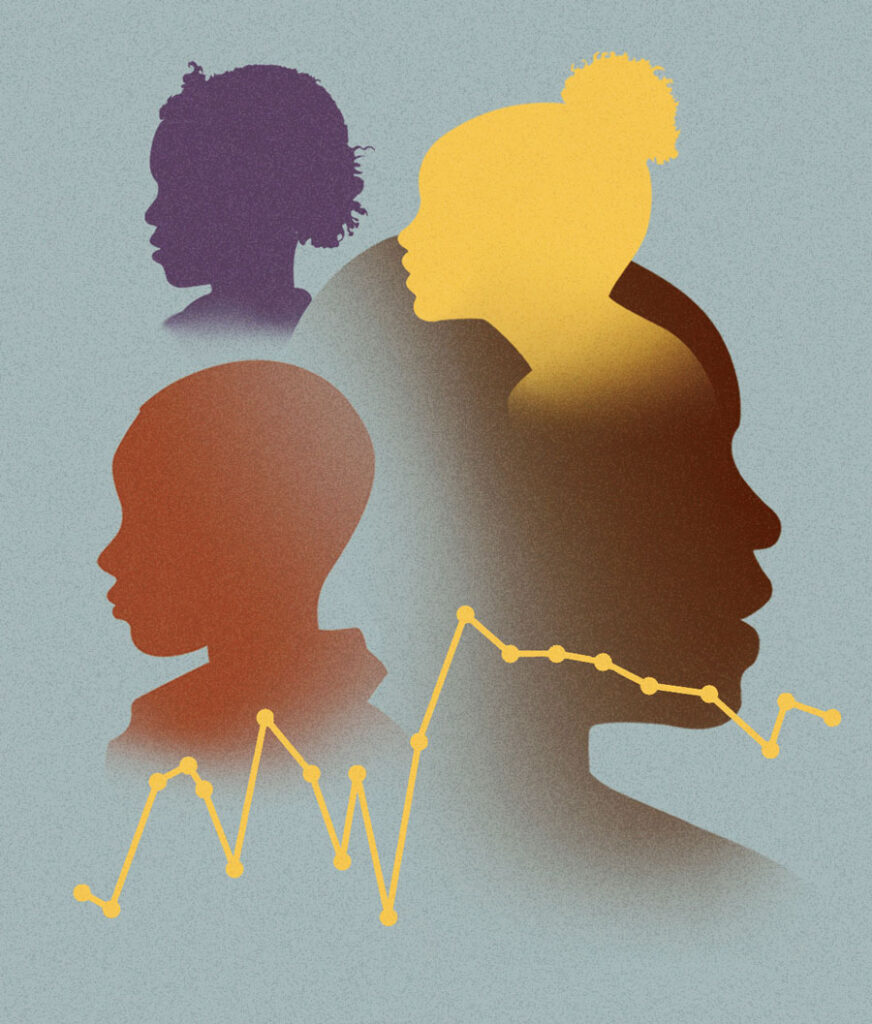Related: Chicago’s Top Respiratory Doctors

Allergies
You can develop them later in life.
People often assume that reactions show up the first time you are introduced to a potential trigger. Not always, says Northwestern Medicine allergist Anju Tripathi Peters: “You may be exposed to a cat growing up and not be allergic.” The same could happen with medication or food. “Some things your body gets sensitized to, and then going forward you may have a life-threatening reaction. You could be eating something like shrimp your whole life, and then all of a sudden you develop an allergy to it.”

Asthma
Your perfume may be triggering it.
Agop Tepeli, a pulmonologist at Advocate South Suburban Hospital in Hazel Crest, says many of his patients have no idea that the chemicals in their — or even their partner’s — cologne, perfume, or aftershave could provoke an asthma attack. Sometimes when he walks into a patient’s hospital room, it’s filled with a strong scent, and he has to tell the patient to lose the fragrance they’re wearing. “They are surprised, and some get offended,” he says. “The way I put it: ‘You smell nice, but it’s not good for you.’ ”

Lung Cancer
You don’t have to be a smoker or old to get it.
Prema Nanavaty, a Rush University Medical Center pulmonologist, has seen it many times: 20- and 30-somethings holding off on geting a persistent cough examined, assuming it must be a respiratory infection or allergies. After all, they reason, they aren’t smokers; they don’t have a family history of lung cancer. “It’s often six months to a year before they come in — not until it’s interfering with their daily life, or a family member is like, ‘You need to get this checked out,’ ” Nanavaty says. When the CT scan shows white spots in the lung, “that’s always a shock. They’re like, ‘I just had a baby — why is this happening?’ ”

Cystic Fibrosis
It can strike children of color, too.
A recent study found that 6 to 7 percent of cystic fibrosis sufferers born between 2010 and 2018 were Black and 13 percent were Hispanic. Yet even some health care providers have the misconception that it only strikes white people, says Susanna A. McColley, a pulmonologist at Lurie Children’s Hospital: “Black parents tell us over and over that their concerns were dismissed, that they had child protective services called on them because their child wasn’t growing.”


